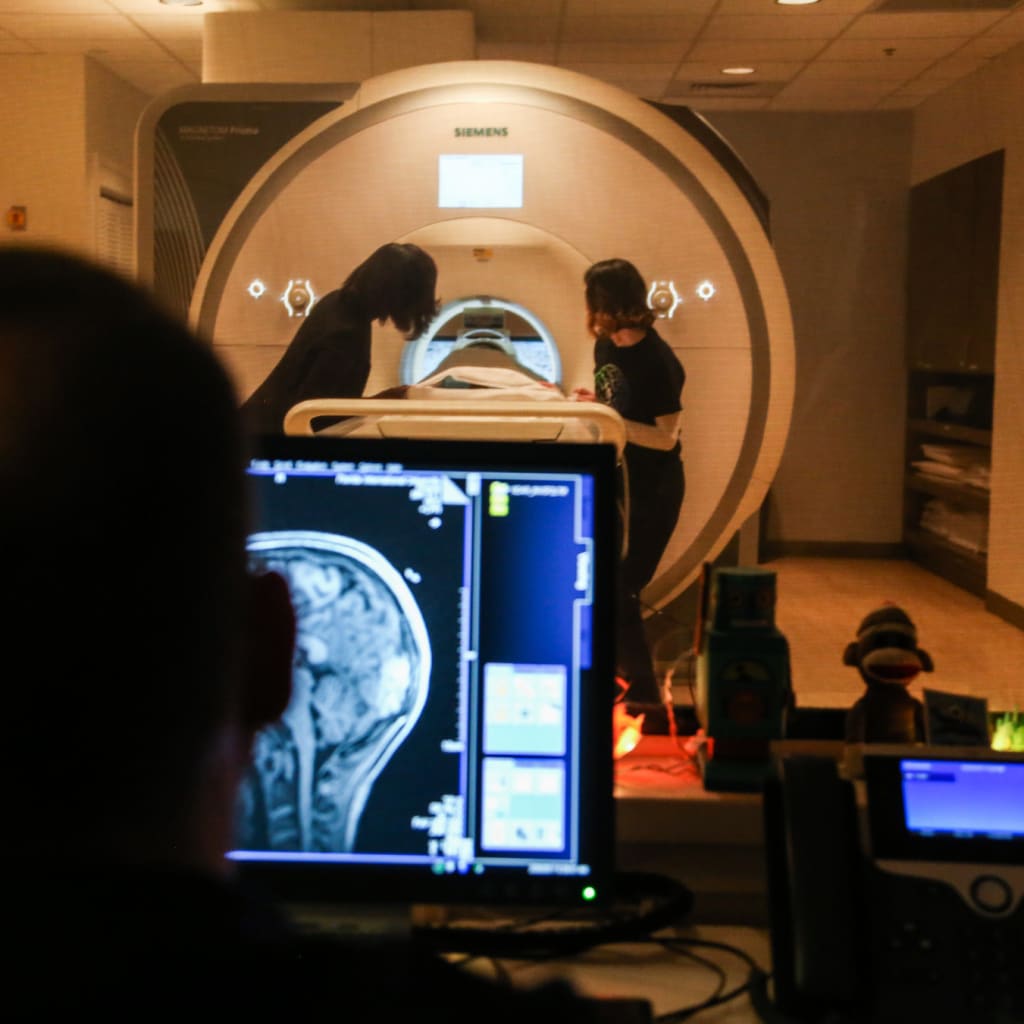–By JoAnn Adkins for FIU News
The National Institutes of Health awarded a seven-year continuation of the Adolescent Brain Cognitive Development (ABCD) Study, providing FIU and 20 other study sites the funding to continue the largest long-term study of brain development and child health ever conducted in the United States.
The renewal provides $290 million for an additional seven years of research across all the research sites. Launched in 2015, ABCD researchers are following 11,750 children, including 2,100 who are twins or triplets, for at least 10 years starting between the ages of 9 and 10. The new funding will allow researchers to continue understanding how environmental, social, genetic and other biological factors affect brain and cognitive development. FIU’s award is for $14M.
“To date, our FIU ABCD site has completed almost 1,000 MRI scans of participating youth and surpassed our initial goal of enrolling 600 families,” said Raul Gonzalez, principal investigator for ABCD at FIU. “We are so grateful to all of the amazing families in our community that have participated in this landmark study.”
Researchers are documenting exposures to drugs including nicotine, alcohol and marijuana as well as screen time activities, sleep patterns, engagement in sports and arts, and other variables that may affect brain development, cognitive skills, mental health and other outcomes.
“The next phase of the ABCD study will help us understand the effects of substance use, as well as environmental, social, genetic, and other biological factors on the developing adolescent brain,” said NIDA Director Dr.Nora D. Volkow. “Since the participants are now in their vulnerable middle school years or are beginning high school, this is a critical time to learn more about what enhances or disrupts a young person’s life trajectory.”
This large research project involves researchers from three FIU Preeminent and Emerging Preeminent Programs (Center for Children and Families, Health Disparities & Inequities, and Brain, Behavior and the Environment. Gonzalez is professor of psychology, psychiatry and immunology, and a faculty member at FIU’s Center for Children and Families. Together with co-principal investigator Angela Laird, he is leading the 14-member research team from FIU’s College of Arts, Sciences & Education and Robert Stempel College of Public Health & Social Work.
Interviews and behavioral testing with study participants are conducted semi-annually and annually. Neuroimaging data, including high resolution MRI, are collected every two years to measure changes in brain structure and function.
The data — more than 140 terabytes so far — include basic participant demographics, assessments of physical and mental health, substance use, culture and environment, and neurocognition, tabulated structural and functional neuroimaging data, and minimally processed brain images. The comprehensive dataset, which is disaggregated by sex, racial/ethnic group, and socioeconomic status, allows researchers to address questions that could inform health decisions and policies related to education, nutrition, physical activity, sleep, and prevention of substance use and mental illness.
FIU had the highest proportion of Hispanic/Latino participants from the 21 sites and published one of the first research papers with data from the ABCD cohort, which examined if and how bilingualism relates to cognitive functioning in youth. FIU psychologists Jonathan S. Comer and Anthony Dick, also faculty members at FIU’s Center for Children and Families led a study to assess the effects of hurricane related media exposure during Hurricane Irma and its impact on the mental health and brain development of youth.
“The talent and collaborative spirit of our FIU investigators have made an impactful and lasting contribution to this historic national study,” Gonzalez said. “We are thrilled to continue this incredibly important study that will help improve the lives of youth for years to come.”
In total, 32 research papers have been published nationally to date, which allow for a better understanding of the association between certain traits and experiences in adolescence and brain physiology and other outcomes, such as cognitive ability and mental illness including depression and suicide. Additional data will be released this summer and made available through the National Institute of Mental Health (NIMH) Data Archive, which can be accessed by researchers who obtain a free NIMH Data Archive account.
The ABCD Study was initiated by the Collaborative Research on Addiction at NIH (CRAN), a consortium of institutes that include a focus on addiction research. CRAN comprises NIDA, the National Institute on Alcohol Abuse and Alcoholism and the National Cancer Institute. Other NIH collaborators in this project are the Eunice Kennedy Shriver National Institute of Child Health and Human Development, the National Institute of Mental Health, the National Institute on Minority Health and Health Disparities, the National Institute of Neurological Disorders and Stroke; the National Heart, Lung, and Blood Institute, the NIH Office of Behavioral and Social Sciences Research, the NIH Office of Research on Women’s Health, and the Division of Adolescent and School Health at the Centers for Disease Control and Prevention (CDC), with additional partnerships with the National Institute of Justice, the CDC Division of Violence Prevention, the National Science Foundation, and the National Endowment for the Arts.For more information, please visit the ABCD website at www.ABCDStudy.org

